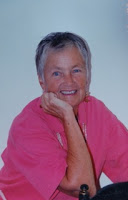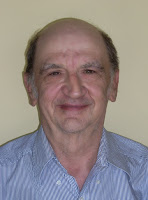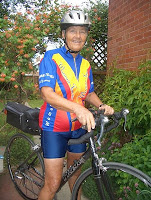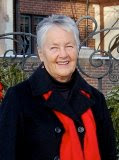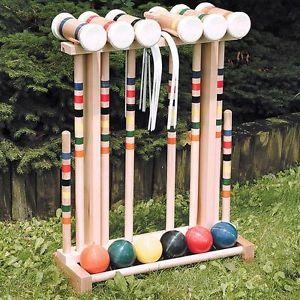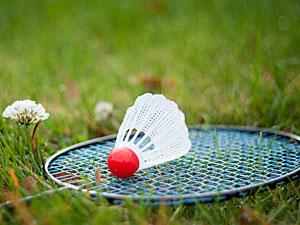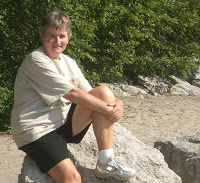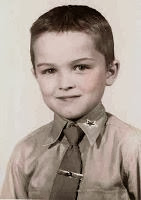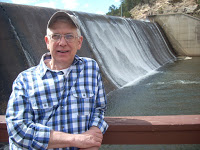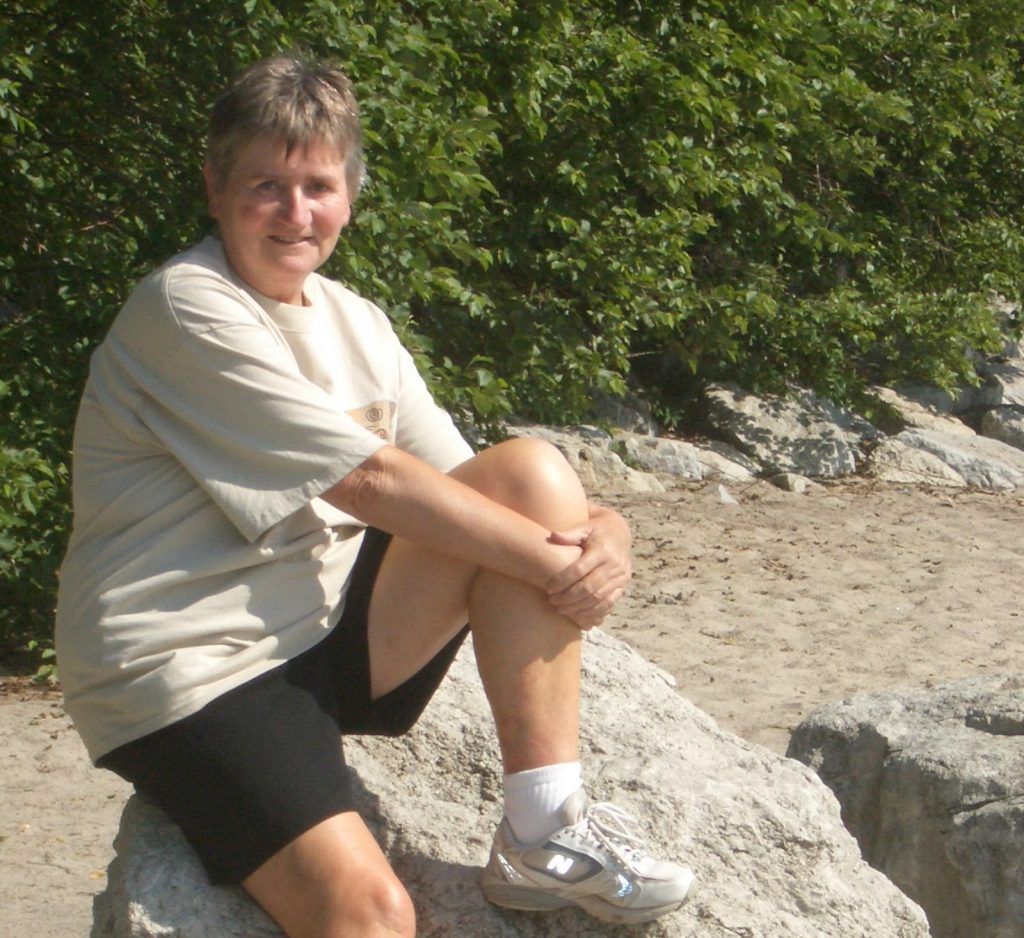Anxiety: A feeling of unease about an imminent event with an uncertain outcome.
Below is a list of situations which have produced anxious moments for me.
1. The first time Gill and I came to the Storytelling group was one that came to mind. I was very anxious about reading my piece to that room full of men that day when the topic was “porn.”
2. Presentations I have had to give for work or any kind of public speaking can certainly produce an anxious moment.
3. I well remember anxious moments climbing and hiking on a particular narrow trail on the side of a cliff in the Canyon Lands NP wilderness on an Outward Bound challenge. The kind of trail where you are aware that one mis-step means certain death. Just thinking about it makes my palms sweat.
I could come up with a number of other anxious moments. That is just a sample.
I’m sure athletes experience many anxious moments waiting to compete. I imagine almost any tennis, football, or baseball player, or racers— any individual or team sport player who takes his competition seriously might give this description of his/her anxious moment. Let’s say a case of pre tennis tournament nerves might sound something like this:
“I was experiencing the extremely uncomfortable feelings of anxiety early this morning. Around 5 AM I was unable to sleep for the unease and by 7 I was doing specific exercises to relieve the agonizing stress—deep breathing, listening to music, trying to relax, etc.
“Finally relief came at 8 o’clock as I knew it would. My doubles partner and I met our opponents and walked out onto the tennis court and started to warm up for our first match. I don’t know about the others, but my most anxious moment started to dissipate the instant I began swinging my racket. I don’t know why just getting started relieves the tension, but I know it does. I have been there before.
“I may have another anxious moment if we have a close match and we see any chance of winning.”
You might think these are the words of the Brian brothers or the Williams sisters or any other doubles tennis team playing in a world class competition at Roland Garros or Wimbledon or the US Tennis Center. But no, these are my very own thoughts and feelings before this morning’s match in the Denver City Open Tournament in—now get this— in the over 80’s women’s doubles category! Super anxiety in spite of the fact that barely anyone even enters this category. Last year there were just two doubles teams so we got to the finals. Only one other team entered the competition and they beat us. We gave them a run for their money ‘though, but they did beat us.
However this is not a puny tournament. There are over 550 entries from all over the region this year in this 10 day competition held at the Denver Tennis Club. Anyone can simply drop by any time during the event to see some excellent tennis live.
This year in the over 80’s women’s there are three doubles teams. (No women ever compete in singles in the over 80’s category which demonstrates how much smarter women are than men.) So we will at least get to play two matches. We are not guaranteed to make the finals, however.
I do keep asking myself, “Why should this cause anxious moments for me?” Another good question is: “Since it does cause anxiety, why do I do it?” I guess it’s because my partner from last year asked me to. And, well, I’m doing it. So I guess I want to. Also, we just might win.
It occurs to me as well that the reason I set myself up for these anxious moments is the same idea expressed in the old adage: “Why do I keep beating my head against the wall? Because it feels so good when I stop.”
© 9 June 2017
About the Author
Betsy has been active in the GLBT community including PFLAG, the Denver Women’s Chorus, OLOC (Old Lesbians Organizing for Change), and the GLBT Community Center. She has been retired from the human services field for 20 years. Since her retirement, her major activities have included tennis, camping, traveling, teaching skiing as a volunteer instructor with the National Sports Center for the Disabled, reading, writing, and learning. Betsy came out as a lesbian after 25 years of marriage. She has a close relationship with her three children and four grandchildren. Betsy says her greatest and most meaningful enjoyment comes from sharing her life with her partner of 30 years, Gillian Edwards.
